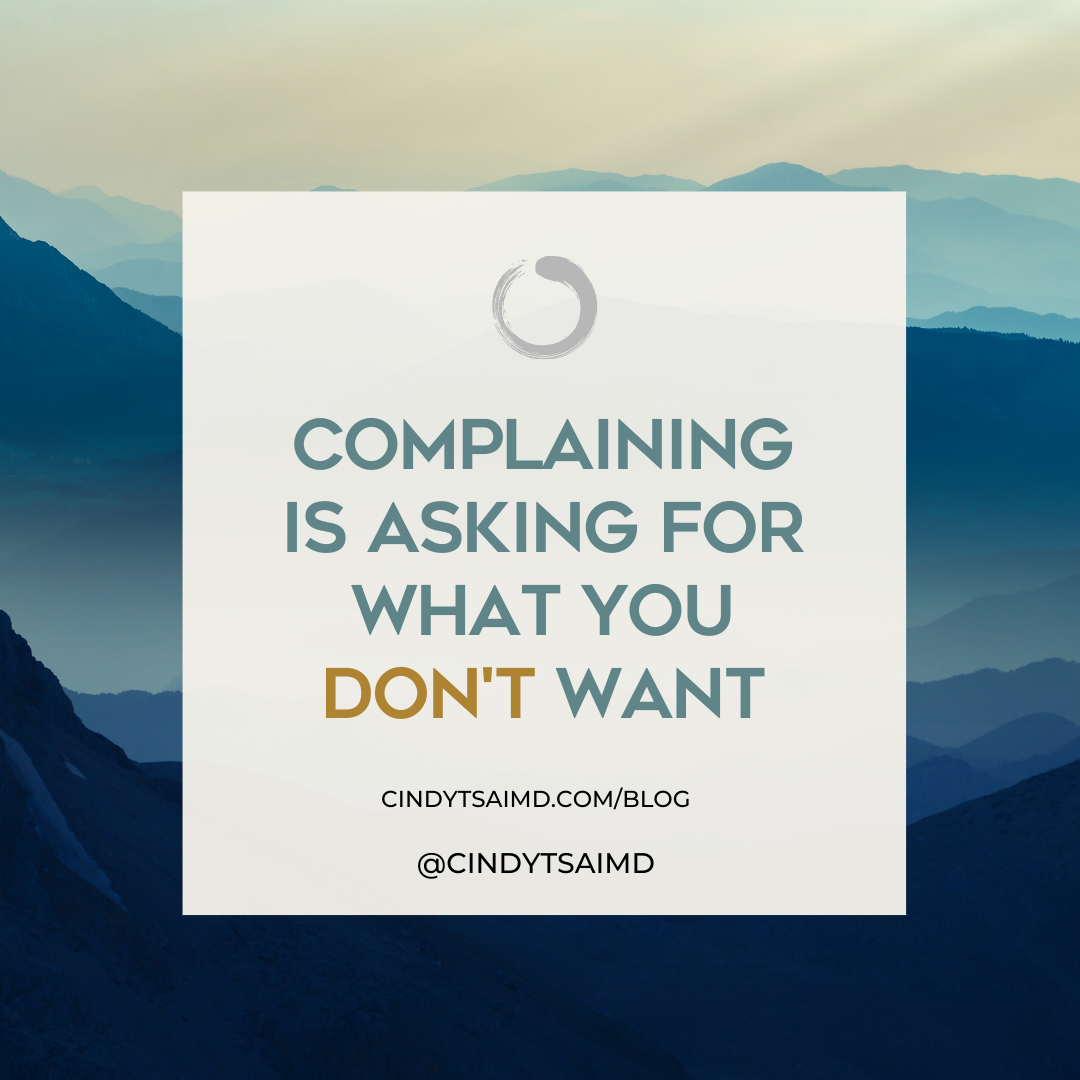Why You Must Stop Complaining Now
How often do you complain? What do you complain about the most?
What does it mean to complain anyway? According to Google, complaining is “the expression of dissatisfaction or annoyance about something.”
Notice that complaining is not neutral. It has an inherent negative energy/quality to it.
I used to complain a lot.
I used to enjoy complaining.
I would look forward to getting together with friends and taking turns moaning and whining about why this new policy change was not great or why that person was so annoying to deal with.
Until I realized that complaining was useless. It was a waste of my time, energy, and resources.
I thought it would feel better to commiserate. That I would feel “heard” and “understood” and “validated.”
But complaining begets complaining. It made me feel like a victim. Like I was helpless and had no control or choice over the situation. And that maybe by complaining and wishing on a lucky star that the problem would magically go away somehow.
But the truth is, it just pulls you deeper into a vortex of negativity. This is because of our brain’s inherent negativity bias.
The negativity bias is the brain’s natural tendency to focus on anything that’s bad, scary or dangerous so that we can avoid it to survive. This was useful in caveman days when the threat of being eaten by a saber-toothed tiger was very real. Not so much today.
When we complain, we are focusing on what’s not working. Complaining is actually asking for what you don’t want. It also triggers our stress response and the release of the stress hormone cortisol.
There are countless studies demonstrating the effects of acute stress and elevated cortisol levels on the body such as impacting our working memory and inhibition. Not to mention increased risk of heart disease, obesity, and weakening of the immune system.
So if you’re ready to quit this harmful habit, try out the following techniques below:
- Express your feelings in a healthy way.
Learn how to process and release your feelings. As I mentioned in my video about how to be unstoppable, you must learn how to feel your feelings. Or you can try out one of the journaling practices I share in my bestselling book, So Much Better. - Make a commitment to go “complaint-free” for 1 week.
7 days. It might be challenging in the beginning. It will require you to pay attention to your words, feelings, moods… Notice anytime you are falling into “complaining mode”, simply pause, take a breath, and re-align your attention. Be curious about why you complain as a coping mechanism. See how you can neutralize your tone and response instead. Share and recruit friends to join and keep each other accountable! - Take control of your mind.
Realize that you are not your thoughts as they are simply words in your head. Just because you have the thoughts doesn’t mean it’s true! This is why mindfulness coaching is so powerful and helpful in shifting your mindset. - Practice gratitude.
Remember, what you focus on grows. Being in a state of gratitude is what will bring you more abundance and ease. Ask yourself every morning or evening what are 3 things you’re grateful for and why? Adding the reason will help deepen your gratitude practice and make it more fun!
By the way, as you start to pay more attention to your words and habits, you might think everyone else around you complains too much. Share this article with them and help them break this habit!
And just because other people are complaining DOESN’T mean you have to complain too. Choose the high road. Repeat after me- “I am not available for it.”
Want to learn more about how coaching can help your mindset and well-being? Visit here and email me (hello@cindytsaimd.com) to share what’s not working in your life and I’ll share some tips to support you now!


Thank you for this article. I agree, I used to complain a lot and all I did was relive the crap that I was complaining about. It feels good to stop doing that because often this act is culturally reinforced. So it feels like a superpower when you can break free even when others around you have yet to do so. So thank you again! With more articles like this from you and others, we can begin to change the tide to something better for everyone!